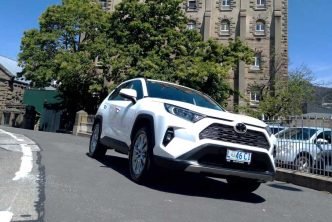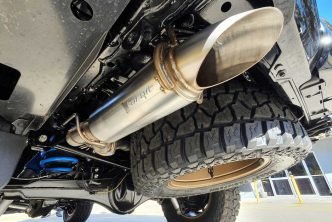Splurging on a new car is exciting, but the process is sometimes stressful. Contrary to car commercials, you need to consider many factors before driving your new vehicle into the sunset, and it’s more than just doing research.
Luckily, there are many things you can do for a smoother car purchasing experience. Instead of looking up to buying tips, take a look at the 7 things to know before splurging on a new car.
Table of Contents
Check up on your Finances
Buying a new car is an important purchase, so financing should be your priority before searching for your potential car. Find out your credit score. The higher your credit score, the better your chance of getting a low-interest rate on an auto loan. If your credit score isn’t high, figure out what’s negatively affecting it. Determine if you can take action immediately to quickly raise your credit score.
Sense what kind of deposit you can put down and if you can afford the monthly payment you choose. Do some research on auto loans so you’ll have an idea of what you qualify for. You can search for services online that help you select terms and rates to fit your budget.
Research, research, and research
Ask yourself what kind of car you want, and what kind of car you need. Look up the car you’re interested, whether to buy a new or research on used car buying tips, before going to the dealership. It’s better to go prepared. Use resources & analyze the models that are perfect for you and narrow them down.

It’s important to determine whether you’re looking for an SUV, a car, or a truck. Consider the basics, this includes mileage total, manual or automatic, two or four-wheel drive, and what gas mileage ranges you prefer. Consider your lifestyle, including your driving patterns, where and how often you travel, and how much space is needed. Don’t settle for anything impulsively.
Discover Your Vehicle’s Trade-In Value
Find out your car’s trade-in value. Don’t wait for a salesman to tell you how much your car’s worth if you plan on trading it in. Get a good sense of its value. Many online tools can estimate the trade-in value for your vehicle. With this information in mind, you can go into the dealership and negotiate a price that gives the most bargain.
Compare Prices
Every car expert emphasizes obtaining detailed pricing information. Get prices from different dealerships and use online services for invoice and deal pricing. Having information from different dealerships allows you to negotiate prices.
Test Drive Your Potential Car
Even if you’re familiar with the make and model, you still need to make time for a test drive. Test drives are one of the less stressful parts of buying a car. It’s pretty enjoyable if you like to drive. It’s important not to rush this process and make impulsive decisions. A website conducted a survey that only 32% of consumers knew the vehicle they want when car shopping. However, only 55% test drive one vehicle.
Pay attention to how the vehicle feels when you make a turn, how the brakes respond, and how the steering feels in your hands. The most important things are your hands, feet, and butt. Make a list of the car’s features and check the reviews on different websites. Pick a day for test driving only. Don’t buy a car on the same day as your test drive. Remember that comfort is key. Check the tech and fuel, then see how it rides over different terrain, if possible.
Find a Trustworthy Dealership
After finding the right car for you, find a reputable dealership that can help you get the best deal possible. Do some research online and read customer reviews or ask your friends or neighbours for recommendations and their experiences. They can direct you to a good dealership or a salesperson who provides great customer service. Get to know the car dealerships in your area. Check out all of your options. A good dealer won’t pressure you to buy a car; instead, they’ll take the time to answer inquiries.
Negotiate
The act of purchasing automobiles is negotiable. If your negotiating skills aren’t up to par, brush up on it. If you’ve done your research, you can certainly walk away with the best price. Consult market analysis reports for a fair value, and consider the vehicle’s demand. Low demand means a lower price. Inquire about cash back incentives or rebates because that’s also helpful. When negotiating, focus on the price you want to pay. Quote a lower number if the salesperson asks for your top-dollar so you eventually settle near your target price. Good luck!





